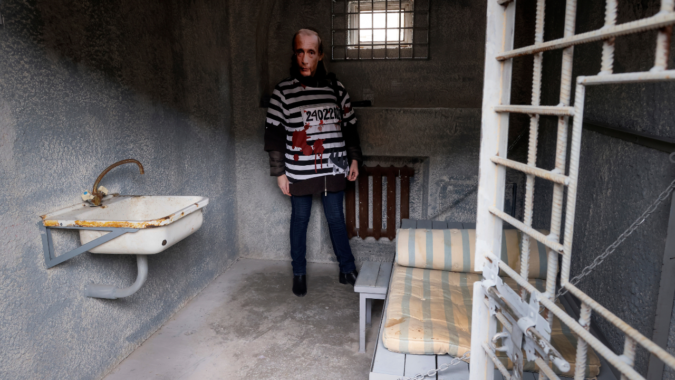MOSCOW: Russian lawmakers on Tuesday approved legislation that could see people who criticise mercenaries jailed for up to 15 years.
The new laws build on rules enacted after Russia deployed troops to Ukraine and that Kremlin opponents say were designed to criminalise criticism of the conflict.
The lower house of parliament on Tuesday green-lit prison time of up to 15 years for criticism of “volunteer groups” such as the Wagner group and individuals fighting alongside the Russian army.
Mercenary outfits like Wagner, which claims to be spearheading Moscow’s assault on the Ukrainian city of Bakhmut, have gained a large public profile in recent months.
“As of today, people who risk their lives to keep our country and our citizens safe are protected from provocations and lies,” said Vyacheslav Volodin, the chairman of Russia’s lower house.
“These actions are unacceptable,” he added in the statement.
The bill is expected to be approved by the upper house of parliament and signed into law by President Vladimir Putin.
Lawmakers also tightened penalties relating to existing laws introduced after February 24, when the Kremlin deployed troops to Ukraine.
“Discrediting” Russian servicemen or “volunteers” fighting with regular troops will be punishable by up to seven years in prison, compared to five years previously.
The maximum term for spreading “false information” about Russia’s forces is 15 years in prison, according to the lawmakers’ decision.
The legislation was approved even though serving as a mercenary remains illegal in Russia.
The new laws build on rules enacted after Russia deployed troops to Ukraine and that Kremlin opponents say were designed to criminalise criticism of the conflict.
The lower house of parliament on Tuesday green-lit prison time of up to 15 years for criticism of “volunteer groups” such as the Wagner group and individuals fighting alongside the Russian army.
Mercenary outfits like Wagner, which claims to be spearheading Moscow’s assault on the Ukrainian city of Bakhmut, have gained a large public profile in recent months.
“As of today, people who risk their lives to keep our country and our citizens safe are protected from provocations and lies,” said Vyacheslav Volodin, the chairman of Russia’s lower house.
“These actions are unacceptable,” he added in the statement.
The bill is expected to be approved by the upper house of parliament and signed into law by President Vladimir Putin.
Lawmakers also tightened penalties relating to existing laws introduced after February 24, when the Kremlin deployed troops to Ukraine.
“Discrediting” Russian servicemen or “volunteers” fighting with regular troops will be punishable by up to seven years in prison, compared to five years previously.
The maximum term for spreading “false information” about Russia’s forces is 15 years in prison, according to the lawmakers’ decision.
The legislation was approved even though serving as a mercenary remains illegal in Russia.
